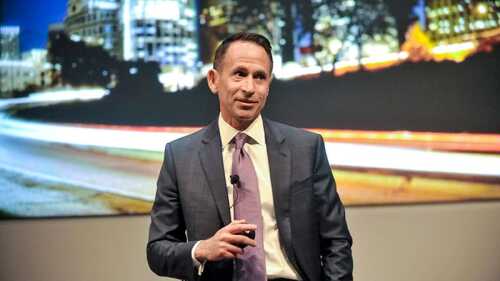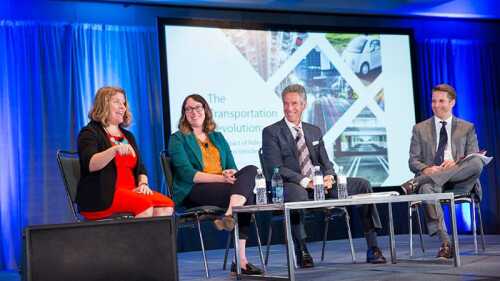Fall Meeting
Modular units, virtual reality, rental homes, data-driven marketing—and even autonomous flying passenger vehicles—will transform master-planned communities in the coming years, a group of developers and marketers said during a panel discussion at the 2017 ULI Fall Meeting in Los Angeles.
For any participant in the U.S. real estate market, failing to understand and interact with capital from the Asia Pacific region is not a viable strategy, Marc Renard of global firm Cushman & Wakefield said during a forum at the 2017 ULI Fall Meeting.
In a keynote address to 2017 Fall Meeting attendees, ULI Global Chairman Tom Toomey emphasized that the overarching goal of the Institute’s leadership is to ensure that ULI delivers consistently high value to members.
In a talk at ULI’s Fall Meeting in Los Angeles, syndicated columnist, bestselling author, and television commentator George F. Will sounded a dire warning that the United States is on a path to fiscal ruin.
The transformation of office space continues, with collaborative, shared spaces replacing traditional private offices and cubicles.
A diverse panel of property industry experts pushed back on a recent New York Timesarticle asking, “Why Can’t We Get Cities Right?” during a lively 2017 ULI Fall Meeting session.
Driven by an e-commerce boom, industrial real estate is in the midst of a golden age that shows no signs of waning, despite lingering concerns about the long-term health of traditional retailers, a group of industrial property managers said during a panel discussion at the 2017 Fall Meeting in Los Angeles.
The advent of driverless autonomous vehicles (AVs) and drone aircraft, coupled with the rapid shift to a collaborative economy in which entrepreneurs find ways to monetize unused capacity, will dramatically transform urban areas and disrupt the real estate sector, according to a pair of speakers at ULI’s 2017 Fall Meeting in Los Angeles.
The coming wave of ride-hailing companies and driverless cars will push down levels of vehicle ownership, reduce parking demand, and transform urban spaces.
American housing continues to evolve as new forms of shelter arise to meet changing demographics and consumer demands.


